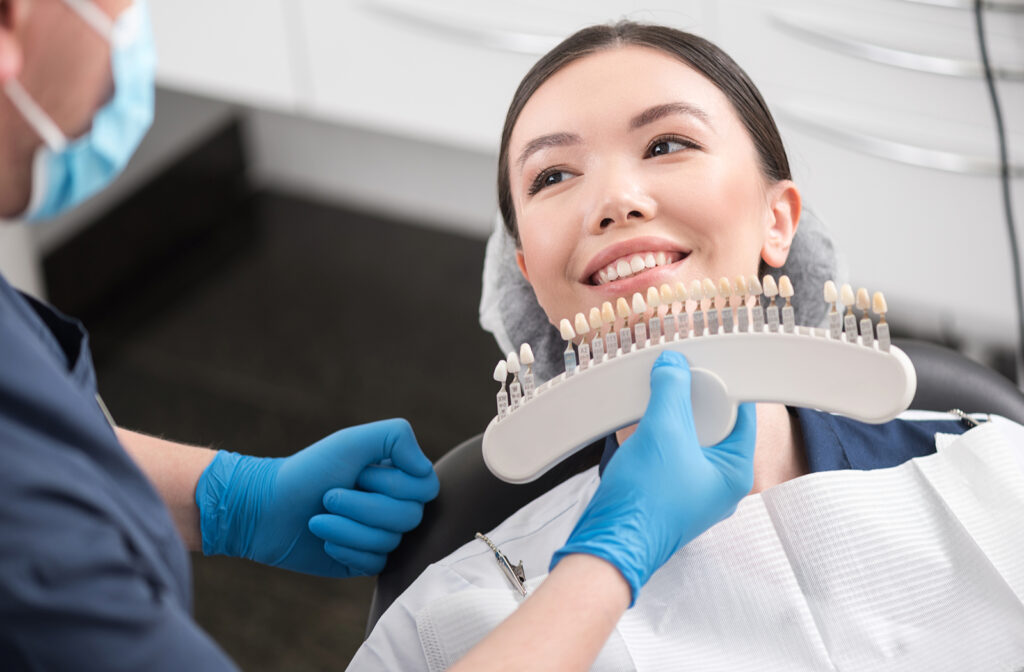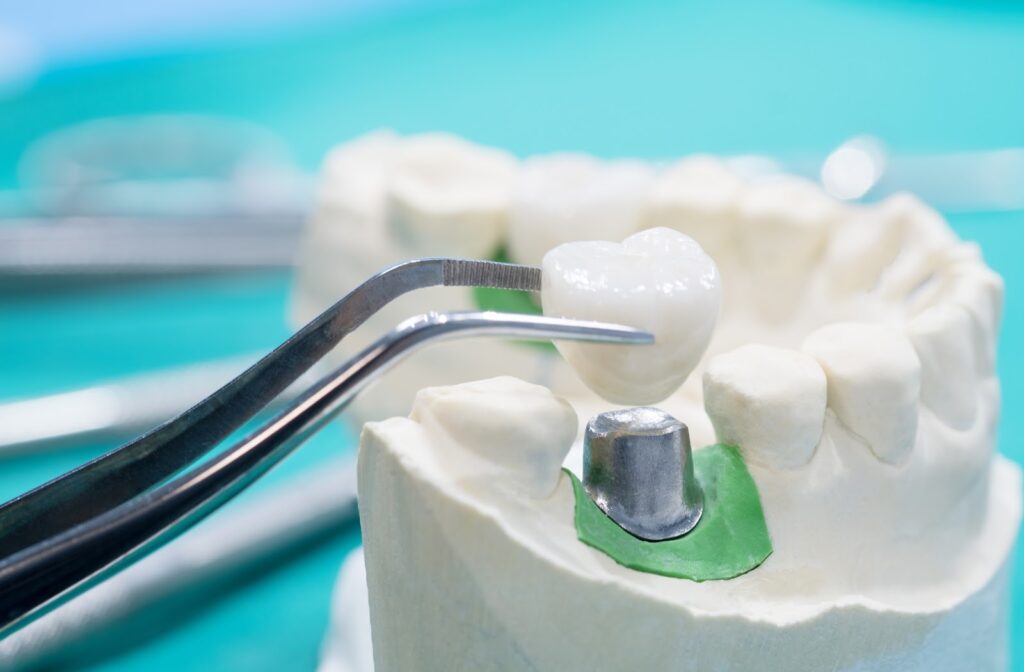Dental Crowns are a common and effective solution to restoring the functionality and appearance of a damaged tooth. Our teeth can become damaged or begin to deteriorate for a variety of reasons — tooth decay, impacts and injuries to your teeth, and even the general wear and tear daily life creates in your mouth can necessitate receiving a dental crown.
Knowing when you need to get a dental crown always starts with a consultation with your dentist. Get your teeth evaluated at Arch King West Dental to see if you could be a candidate for a dental crown.
What is a Dental Crown?
As mentioned above, dental crowns are usually a solution to restoring damaged or deteriorated teeth. Crowns are caps that can be made from various different materials that will get fixed over a damaged tooth by a dentist. These caps are meant to fully replicate the function and look of the rest of your teeth, and help prevent damaged teeth from causing peripheral problems to your oral health.
How Are Dental Crowns Applied to Your Teeth?
Once you have decided to receive a dental crown, you will go through a procedure involving the following:
- Your dentist will give you a local anesthetic to numb your mouth.
- The damaged tooth that needs restoration will be reshaped so a crown can fit over the top of it.
- Once your tooth has been reshaped properly, an impression of the re-shaped tooth and nearby teeth will be taken.
- The impression of your teeth is then used to make your permanent custom crown to the specifications that are needed for your mouth.
- Once your dentist has determined the size and shape needed for your permanent crown, they will make a temporary crown for you to wear until your next appointment when your custom crown will be ready to be applied.
- Once your permanent crown is ready, you will be called back into the office where it will be fixed to your damaged tooth.
When Do You Need to Get a Dental Crown?
The need for a dental crown arises for many different reasons. Damage, fractures, and chips can occur just from general wear and tear or tooth decay caused by plaque buildup. Having a root canal or large filling can also necessitate getting a dental crown in some cases.
Sometimes, a dental crown can also be used to cover up discoloured or excessively stained teeth rather than for the purpose of restoring a damaged tooth’s functionality. If your teeth have become very worn out or completely discoloured, receiving a dental crown can help bolster your general oral health and keep your mouth from receiving any internal damage.
If a tooth is misaligned, you may need to receive a dental crown to correct it. This will ensure that the misaligned tooth does not cause damage to the other teeth in your mouth.
The best way to know if you need to get a dental crown is to consult with your dentist and book an appointment for an overall evaluation of the condition of your teeth and oral health.

Metal Crowns
Metal crowns are made from durable metals like gold or chromium. The benefits of metal crowns are that they last a long time and will not typically break or chip with normal use.
While these kinds of crowns are the most durable and long-lasting, they will not match the colour of your other teeth and will retain a metallic colour throughout their time of use.
Porcelain & Ceramic Crowns
Porcelain and ceramic crowns will match the look and colour of your teeth the closest out of any type of dental crown material. But while they give an authentic and natural look to your teeth, they usually do not retain the same level of benefits regarding durability that metal crowns have.
Porcelain-Fused-to-Metal Crowns
This type of dental crown contains a combination of porcelain and metal, attempting to replicate the natural look of teeth while retaining the qualities of being durable and strong.
Be wary though — in some cases metal may show through at the gum-line if your gums are thin or shrink with this type of crown.
Composite Crowns
These crowns effectively match the natural look of your other teeth and offer strength and durability compared to other dental crown materials. With composite crowns, you have to be careful about brushing and flossing your teeth due to the polished surface of these crowns potentially deteriorating.
Onlays & 3/4 Crowns
These kinds of crowns cover a smaller portion of your damaged tooth compared to regular dental crowns. The benefit of this is that you will not have to reshape your damaged tooth to the same extent that you would need to with regularly sized dental crowns.
Onlays and 3/4 crowns can come in a variety of different materials — it is up to you and your dentist to choose the material that suits your specific needs.


